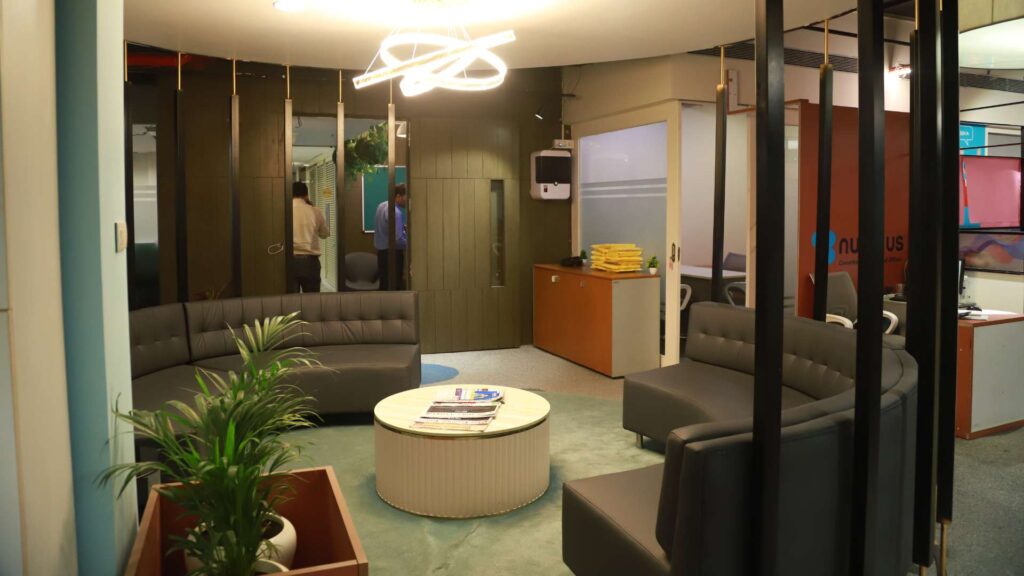The importance of flexible office spaces

Importance of flexible Workspace
An office setting that allows for flexible work environments is known as a flexible workplace. This might be an open office layout, a coworking space, or hot desks.
Businesses are increasingly using flexible workplaces as a method to be more productive and agile while still having the ability to scale up or down as needed. Employees have the option to work anywhere thanks to this office design, commonly known as “flex space.”
Flexible workspace types
A company can use a variety of flexible workspaces, each with advantages of its own.
One of the most common varieties is coworking, which involves sharing office space with employees from different businesses. Due to the sense of community and teamwork it fosters, this is frequently observed in incubators or centers for startups.
Another well-liked kind of flexible workplace is hot desking, in which staff members have no designated desks and are free to work wherever they like. This promotes greater collaboration among coworkers and may result in a workplace that is more adaptable and innovative.
As they promote greater employee engagement and more natural light, open office floor plans are also growing in popularity. They also enable firms to reorganize their premises as needed.
One of the most crucial things to think about when designing an open office floor is the layout, along with the furniture that will be used. It’s crucial to seek professional advice before deciding on an open office floor to make sure it will be the best choice for your company.
What Distinguishes a Flexible Workspace from A Traditional Workspace?
A flexible office is less likely to contain cubicles, private offices, and assigned desks since it frequently lacks the typical office’s confining visual structure. The whole idea of flexible office space is that you can simply show up, choose a workspace that appeals to you, and get to work right away. Nukleus is such a coworking brand for flexible coworking spaces.
This type of high-quality setting may boost employee productivity, and it ends up being a less expensive option for many startups. A membership at a coworking space or renting out a tiny portion of an existing flexible office are far less expensive options than renting out a regular office and furnishing it with furniture.
Additionally, this form of contemporary workplace combines workers and independent contractors from a wide range of businesses and industries, allowing you to network productively and stay away from the office politics that are prevalent in many traditional office settings.
Importance
1. Flexible agreements
According to your current headcount, flexible offices let you move in immediately and quickly reduce or increase your space. With an all-inclusive price and far shorter terms than a traditional office lease, you may also plan your budget appropriately.
Having this kind of flexibility is essential for companies that don’t know how many employees they will have in six months because it allows them to increase their teams or reduce them if necessary.
2. Pay for the space you require
As is the case with many traditional private office spaces, there is no reason to pay for space you are not utilizing just in case you need it someday. You only pay for the coworking area you use, and if you do need to give up coworking space at the end of your lease, you won’t be penalized for the space you didn’t utilize in case of flexible coworking spaces, We find that modern firms need to correctly forecast their monthly spending and scale up and down efficiently on short notice.
For instance, for four years, we assisted the network monitoring business Thousand Eyes with three office moves in London. They expanded their living area with each move, which they could not have done if they had been confined to an office.
3. Network Possibilities
In a conventional private office, you might meet one or two coworkers at the shared microwave before returning to your desks. Coworking environments, on the other hand, facilitate greater social interaction. With flexible offices, you’ll frequently share space with freelancers, small enterprises, and occasionally international corporations.
Numerous flexible workspaces that we help organizations find include:
- Shared kitchens used by all
- Breakaway regions
- Informal gathering areas
- Gyms and exercise facilities
- Lounges
- Conference rooms
You’ll have lots of opportunities to network as many flexible workspace providers provide free events every month. Despite the epidemic forcing many community gatherings online, providers still facilitating online networking possibilities.
4. Employee Happiness
A coworking space provider must offer advantages that are competitive; since they won’t be tying you down for years, they must work hard to keep you. They must provide you with areas that foster contentment, fulfillment, and productivity.
In order to really support workplace wellness, providers must go above and beyond the bare minimum requirements, such as providing dependable maintenance and may need to offer concierge services, events, yoga sessions, and gyms. You and your team are our top priorities (as you should be).
